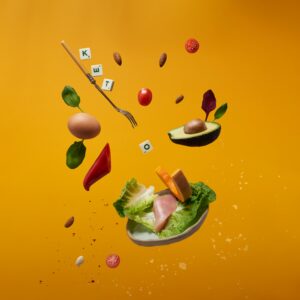Bloating is a common discomfort that many of us have experienced at some point in our lives. While it’s normal to feel a bit bloated from time to time, persistent bloating can be bothersome and may be linked to certain foods in our diet. In this post, we’ll explore an informative article from Healthline that highlights 13 foods that might be contributing to that uncomfortable bloated feeling.
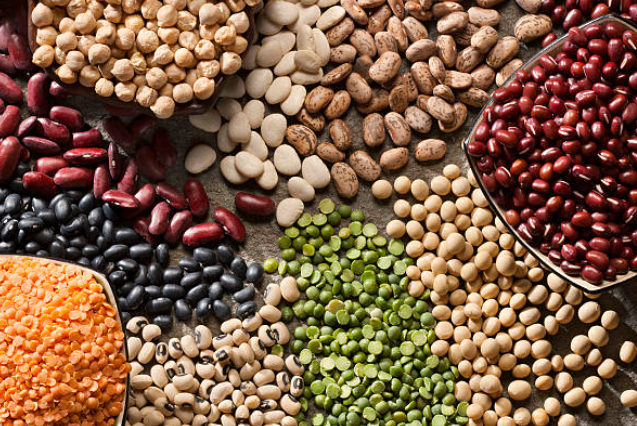
- One notable offender in the list is lentils. These legumes, though nutrient-dense and an excellent source of protein and fiber, can be challenging for some individuals to digest. To replace them, consider incorporating easily digestible protein sources such as quinoa, tofu, or lean poultry into your meals.
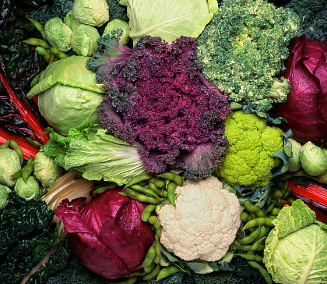
- Broccoli, cabbage, cauliflower, and Brussels sprouts are known as cruciferous vegetables. While they are packed with vitamins and antioxidants, they also contain a carbohydrate that can cause gas and bloating in some people.
- Swap cruciferous vegetables with veggies like spinach, zucchini, and bell peppers. These alternatives provide essential nutrients without the same level of gas-producing carbohydrates.
Carbonated Drinks:
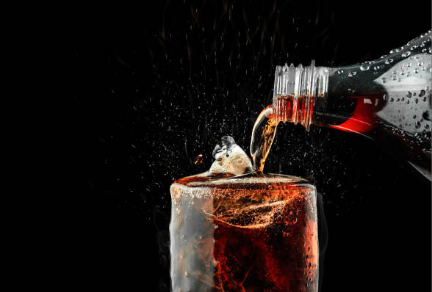
- The fizz in carbonated drinks can lead to the accumulation of gas in the digestive system, causing bloating. Opt for still water or herbal teas instead of carbonated drinks. Staying hydrated with these alternatives can help reduce bloating and contribute to overall better health
Dairy:
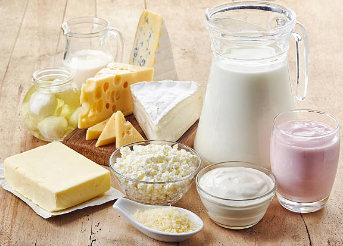
- Dairy products, especially for individuals with lactose intolerance, can lead to bloating and discomfort. Try instead lactose-free alternatives or almond, soy and oat milk to still enjoy the benefits of dairy without the unwanted side effects.
Artificial Sweeteners:
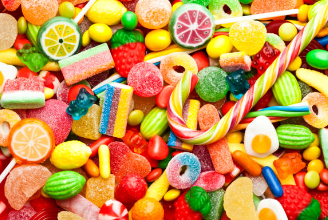
- Certain artificial sweeteners, like sorbitol and mannitol, are notorious for causing gastrointestinal distress. These sweeteners are found in sugar-free gums, candies, and some diet foods, so it’s essential to be mindful of their consumption. Choose natural sweeteners like golden or maple syrup instead of artificial sweeteners. These alternatives can sweeten your dishes without causing gastrointestinal distress.
Processed Foods:
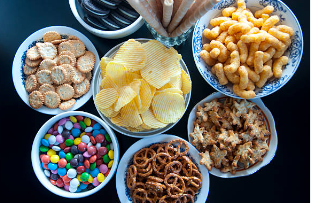
- Processed foods often contain additives, preservatives, and high levels of salt, which can contribute to water retention and bloating. Opting for whole, unprocessed foods may help reduce bloating. Fresh fruits, vegetables, lean proteins, and whole grains are excellent choices for a well-balanced and bloat-free diet.
High-Sodium Foods:

- Excessive sodium intake can lead to water retention, causing bloating. The article suggests being mindful of salt intake and choosing low-sodium alternatives when possible. Fresh herbs, spices, and other flavorful seasonings can add taste to your meals without contributing to water retention.
FODMAPs:
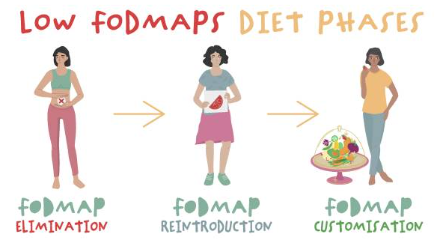
- FODMAPs (fermentable oligosaccharides, disaccharides, monosaccharides, and polyols) are a group of carbohydrates that can cause digestive issues, including bloating, in some individuals. Experiment with low-FODMAP alternatives, for example, choose strawberries, blueberries, or oranges instead of high-fructose fruits.
Chewing Gum:
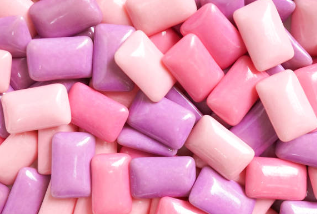
- Chewing gum can lead to swallowing air, which may contribute to bloating. Healthline recommends minimizing gum chewing if you’re prone to bloating or opt for sugar-free mints if you still crave that fresh feeling. This reduces the likelihood of swallowing excess air, which can contribute to bloating.
Beer:

- Alcoholic beverages, particularly beer, can cause bloating due to the carbonation and fermentation process. If you are looking for alcoholic alternatives, then red wine, white wine, or spirits (if not added to a carbonated mixer) may cause less bloating.
Processed Grains:
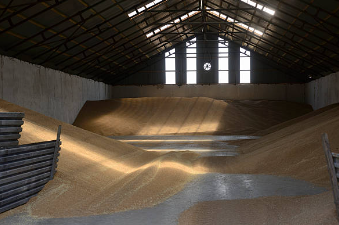
- Refined grains, such as white bread and pasta, lack fiber and can cause digestive issues. Switch to whole grains like brown rice, quinoa, and oats instead of refined grains. These options provide more fiber and nutrients for improved digestion.
Onions and Garlic:
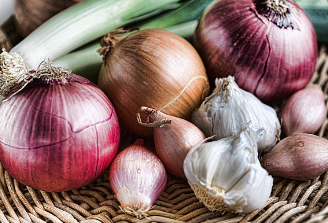
- While onions and garlic add flavor to dishes, they also contain certain compounds that can lead to bloating and gas. Cooking them thoroughly or using them in moderation may help minimize their impact or use herbs and spices like basil, oregano, or ginger to add flavor to your dishes without the bloating potential of onions and garlic.
High-Fructose Fruits:
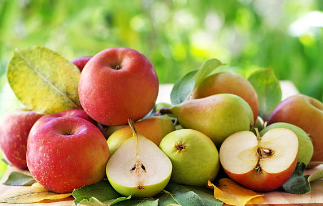
- Certain fruits, like apples, pears, and watermelon, are high in fructose, a type of sugar that can cause bloating in some individuals. Opt for fruits lower in fructose, such as berries, kiwi, and pineapple. These alternatives offer sweetness without the same risk of causing bloating.
Understanding the potential culprits behind bloating is the first step toward finding relief. While these foods may affect some people, it’s essential to note that individual responses vary. If persistent bloating is a concern, consulting with a healthcare professional or a registered dietitian can provide personalized guidance and support on managing digestive discomfort. By making informed choices and being mindful of our dietary habits, we can work towards a more comfortable and bloat-free lifestyle.
EUROPEAN PERSPECTIVE
8 foods to reduce bloating according to avogel.be (UK)
- Ginger
- Mint tea
- Asparagus
- The banana
- Papaya
- Fennel seeds
- The cucumber
- Lemon water
source: https://www.healthline.com/nutrition/13-foods-that-cause-bloating & https://www.avogel.be/fr/conseils/digestion/8-aliments-pour-reduire-les-ballonnements.php


